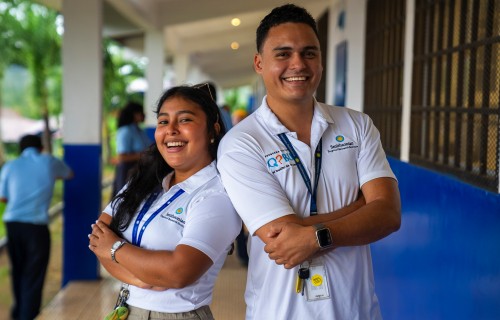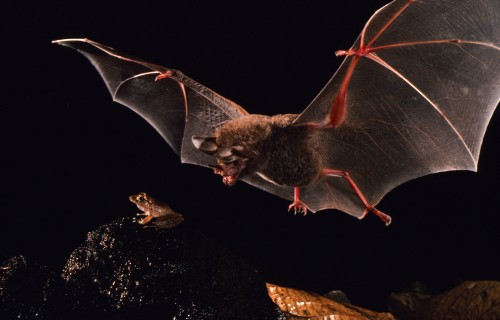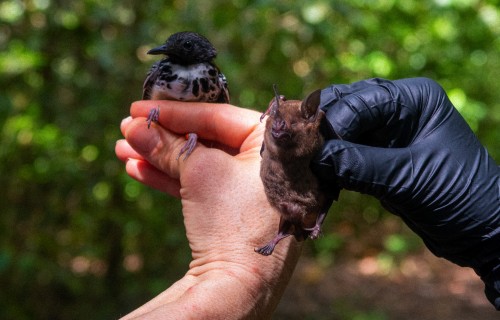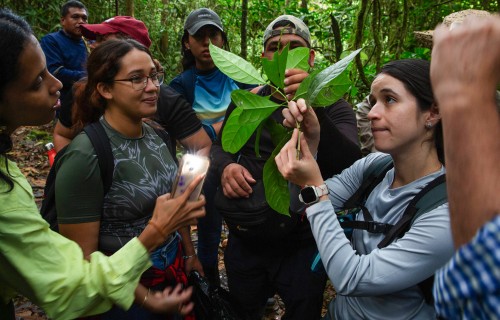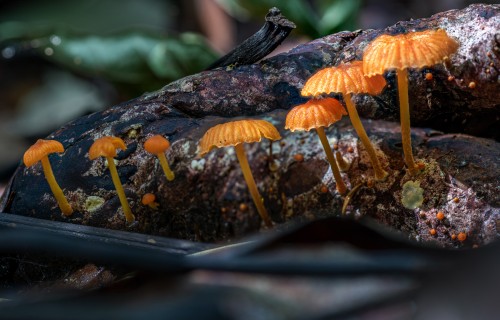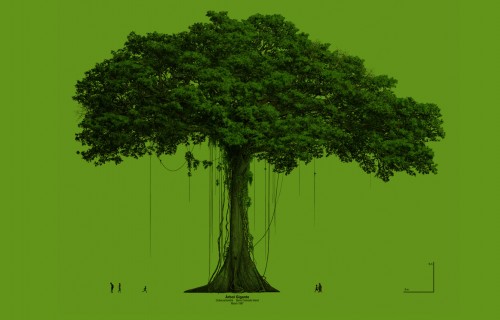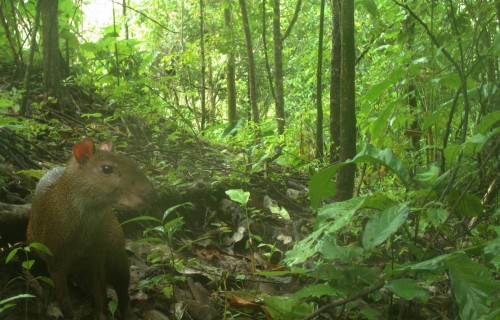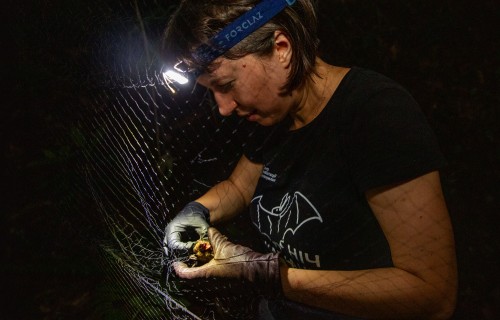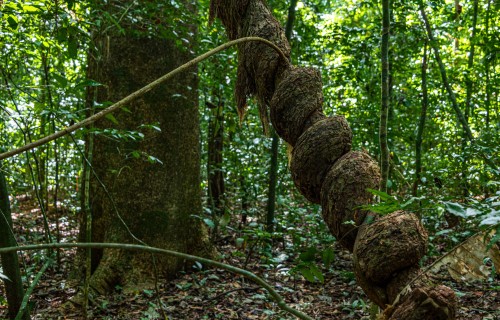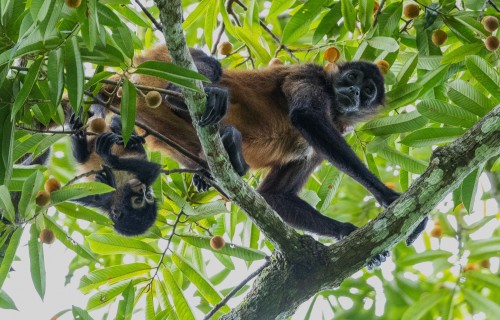Q?Bus begins its
journey around
Panama
Environmental
services
Agua Salud helps inform smart
land management decisions
through science
Colon
Through the long-term study of different landscapes in the Panama Canal Watershed, and the environmental services they offer, the Agua Salud project aims to use its data to improve human welfare and ensure a more sustainable future throughout the tropics
In February, representatives from the Inter-American Development Bank, the World Bank and the Development Bank of Latin America, met with forest ecologist Jefferson Hall from the Smithsonian Tropical Research Institute (STRI) to learn about the Agua Salud project. As the primary lenders for development projects in Panama, they aimed to understand the science behind this unique, large-scale reforestation and land use study in the Panama Canal watershed and plan to join forces to apply research based decision-making to water resource management and in their role as advisors for local decision makers.
In 2007, STRI initiated Agua Salud, an ambitious long-term project designed to document the environmental services we get from tropical forests, such as access to clean water, native timber and climate control. With world population quickly approaching the 7.7 billion mark, ensuring the resources to fulfill basic needs becomes a pressing challenge. The issue is further aggravated by rapid loss of forested areas as they give way to development, agriculture or cattle pasture.
Named for the river that flows into the canal, the 700 hectare Agua Salud area is divided into nine different landscapes common in the rural tropics –from native tree plantations to invasive grasslands. Researchers collect a wide range of data to better understand hydrology, carbon uptake, biodiversity, disease ecology and economic benefits. In the tropics, in particular, these data are scarce, making it difficult to understand how land-use decisions impact the benefits we gain from nature.
With over 10 years of information, data from Agua Salud is a powerful tool for landowners and decision makers as they weigh long-term economic and environmental risks, benefits and tradeoffs of potential land-use decisions.
It also helps inform smart land management strategies to rehabilitate tropical ecosystems that have been lost or degraded. By applying land-use management approaches such as forestry plantations and agroforestry, the potential capacity to provide ecosystem services is greatly enhanced.
Ultimately, one of the primary goals of Agua Salud is to make sure its science isn’t confined to the academic literature, and that it can be harnessed in ways to improve human welfare and ensure a more sustainable future throughout the tropics. Given the scope of the project, the range of its data and its location, it has become an optimal platform for further ecosystems research and across a variety of complementary disciplines related to the landscape. Thanks to support, in part, from the Lloyd’s Tercentenary Research Foundation and the Smithsonian UK Charitable Trust, researchers have developed scenarios that highlight the implications of policy choices facing government planners and other decision makers.

